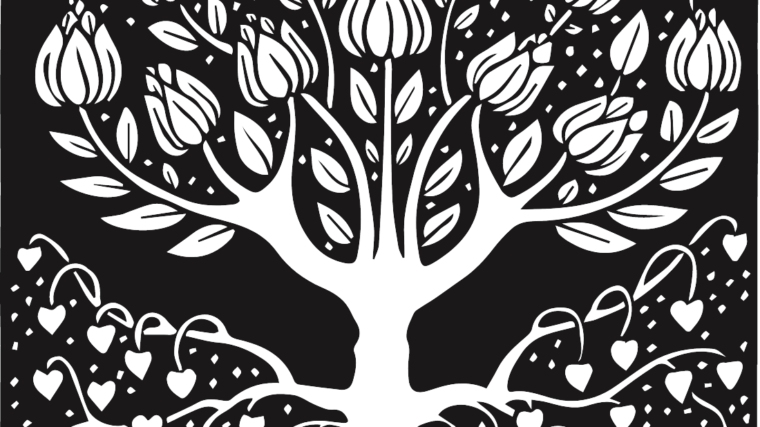Blue Cliff Record, Case 11
Huang Po, instructing the community, said, “All of you people are gobblers of dregs; if you go on traveling around this way, where will you have Today? Do you know that there are no teachers of Ch’an in all of China?”
At that time a monk came forward and said, “Then what about those in various places who order followers and lead communities?”
Huang Po said, “I do not say that there is no Ch’an, it’s just that there are no teachers.”
Reflections
Just to remind you, Huangbo is the great zen master who lived at the same time as many other zen masters such as Chao-chou, Nanquan and Mazu (who was his teacher). Perhaps his most famous student was Linchi, known as Rinzai in Japanese, who of course was the founder of the Rinzai school of Zen. So in a sense Huangbo is responsible for the Rinzai school.
Huangbo was a giant of a man, said to be almost seven feet tall. He sported a peculiar lump on his forehead which, it is said, was caused by persistent, strenuous full prostrations and forcefully smacking his forehead on the ground. It is also said that he was iconoclastic and once while bowing, a student, challenged him, and asked why he was always bowing since he didn’t hold to religious traditions and practices? What did he hope to attain with his bowing? Huangbo slapped the student, who by the way was of the nobility and later became emperor, and Huangbo said to him, “You know nothing at all about zen. There is nothing to attain. Bowing has nothing at all to do with traditions and religious practices. I just bow!
Another wonderful story told of a pilgrimage he and another monk were making. After traveling for quite a while they came to a roaring wide stream. Huangbo stopped in his tracks. His companion monk told him, “Come on,” and entered the stream. He walked on top of the water and reached the other side. Huangbo was furious. He shouted at him. “You snot-nosed false-faker-monk! If I knew you were going to perform miraculous tricks I would have broken both your legs.” The monk, on the other side of the stream said, “Now I know you are a true follower of the Way,” and instantly vanished.
How like the Desert Fathers this is. Like the time when one of the Fathers was so deep in his prayers that he began ascending to the heavens and another Father seeing this ran to him, grabbed his fellow monk by the feet and dragged him down back to earth. “This is where we belong” he said, “not in the heavens.”
And so we have Huangbo a very definitely down-to-earth zen master. And his teachings, like those of Shakyamuni Buddha, are down-to-earth, as they are in this koan.
It seems to me that the heart and teachings of this koan are contained in three sentences.
You people are all slurpers of dregs.
If you travel like this, where will you have today?
Do you know that in all of China there are no teachers of Chan?
So let’s take them one by one.
“Slurpers of dregs.” Other translations have it as “partakers of brewer’s grain.” Or the grain left after brewing wine or beer. Or “eaters of leftovers.” Or simply “drunkards.” We are talking about people who gobble up the grain after the wine has been removed and believe that they have tasted the true wine.
The second sentence, “If you travel like this, where will you have today?” indicates that these zen practitioners travel around the country hopping from one monastery after another, sipping a bit here, a bit there, but never getting the true taste of zen. And yet they think they have. They are moving about so much that they are not present where they are because they don’t hang around long enough to be present. They miss “today.” They miss now. They don’t realize that zen in not found in teachers. They never heard of Atta Dipa. That the teaching and the teachers are within. Not in the grand monasteries. Not in the great sutras. Not in the great koans. Fingers pointing to the moon within the heart.
In researching this koan I came across some wonderful quotes which I’d like to share with you. In the Secrets of the Blue Cliff Record, Hakuin says that Huangbo’s statement is poison in the water and whoever drinks it dies.
Tenkei says of the phrase “gobblers of dregs,”
Everywhere they say that people who consume writings and sayings are gobblers of dregs, but Daie explained that if writings were dregs, then “the oak tree in the yard” and “three pounds of flax” would also be dregs. So it cannot be seen as limited to writings and sayings. From the perspective of the zen eye, even practice is gobbling dregs, even travel for study is gobbling dregs, even talk about doing meditation or reading scripture is all involvement in writings and sayings. Therefore even to speak of enlightenment and delusion, views of buddha or views of Dharma, is all gobbling dregs.
And about the no-teachers-of-zen statement of Huangbo, Tenkei says,
Today Huangbo activates the natural teacherless way;
the dragons and snakes of the entire universe, the whole earth, and the four seas determine the falsehood or authenticity of the teaching masters. False teaching means false paths among the ranks of the Buddhist and Zennists, those that seek outside the mind. Authentic teaching refers to those who have relinquished everything, even the mysterious profound principles of Buddhism, gain and loss, right and wrong. It is necessary to have the Zen eye like this.
Dogen, in Eihei Koroku, 1.125 says,
Already for thirty years, I have not been saying there is no zen, but only that there are no teachers; self and self stand shoulder to shoulder.
Finally, in the Commentary section of the koan are the wonderful lines,
Without wings fly through the sky
Without fame become known throughout the world
***
Huang Po, instructing the community, said, “All of you people are gobblers of dregs; if you go on traveling around this way, where will you have Today? Do you know that there are no teachers of Ch’an in all of China?”
At that time a monk came forward and said, “Then what about those in various places who order followers and lead communities?”
Huang Po said, “I do not say that there is no Ch’an, it’s just that there are no teachers.”



